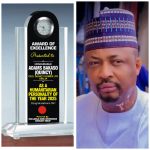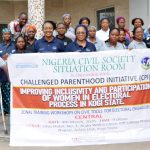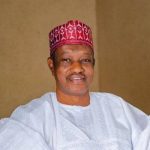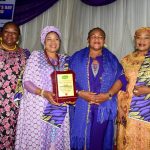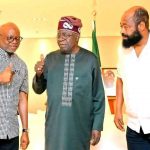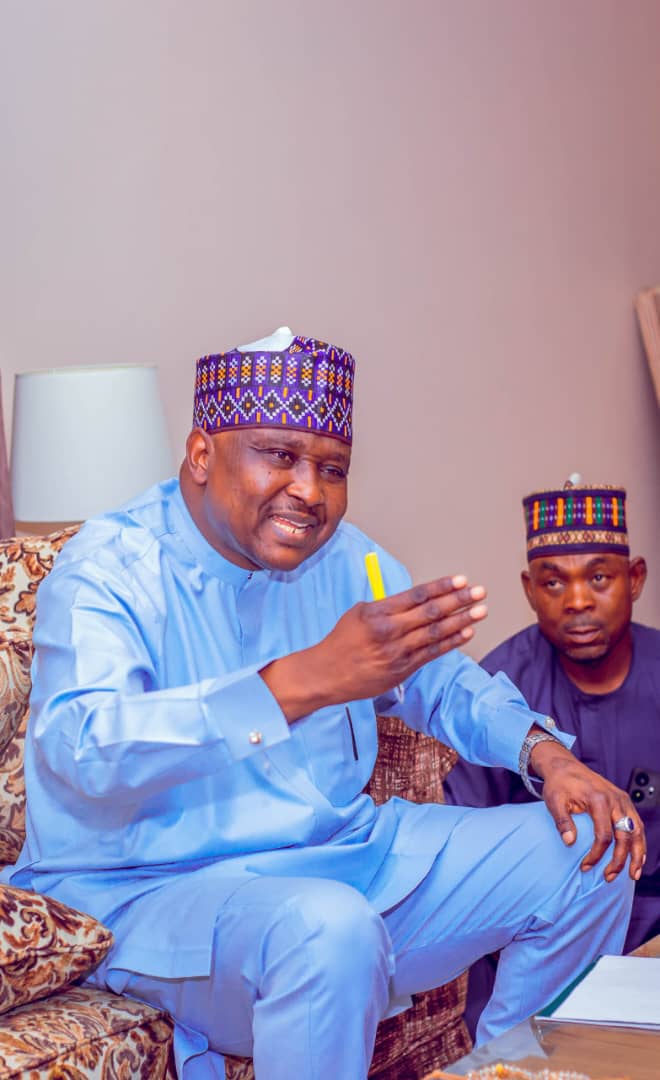Kwankwaso’s Possible Return to APC: A Strategic Move or Political Realignment? – Doguwa Weighs In
By Bala Salihu Dawakin Kudu Democracy Newsline Newspaper
August 6, 2025
As Nigeria’s political landscape continues to shift ahead of the 2027 general elections, new speculations have emerged regarding the potential return of Senator Rabiu Musa Kwankwaso to the ruling All Progressives Congress (APC). This speculation, sparked by a public statement from Rt. Hon. Alhassan Ado Doguwa, the member representing Doguwa and Tudun Wada Federal Constituency in Kano State, has triggered a wave of political discourse and speculation across the nation.
Doguwa, a staunch APC loyalist and a prominent political figure in Kano State, recently hinted that Kwankwaso may be considering a return to the APC — a party he once helped build before leaving it in 2018 due to internal rifts. Despite Kwankwaso’s history of criticism against President Bola Ahmed Tinubu, Doguwa argued that political criticisms do not necessarily rule out future collaboration.
“Being a Critic Doesn’t Mean He Can’t Work With Tinubu”
“There is a possibility that Kwankwaso wants to go back to the APC. No Kwankwasiyya member would meet Tinubu without the knowledge or approval of Kwankwaso. Being a critic of Tinubu doesn’t mean Kwankwaso can’t work with him. In politics, there are no permanent enemies, only permanent interests.”
Doguwa referenced the recent high-profile meeting between Hon. Abdulmumin Jibrin Kofa — a prominent Kwankwasiyya figure — and President Tinubu at the Presidential Villa in Abuja. According to him, such a meeting could not have occurred without Kwankwaso’s express permission or tacit approval.
In the broader context of Nigerian politics, Doguwa’s comments underscore a longstanding political reality: Nigerian politicians often shift allegiances not necessarily based on ideological conviction but strategic alignment and survival. This dynamic is what makes the possibility of Kwankwaso’s return to the APC both plausible and politically significant.
Rabiu Kwankwaso, a former governor of Kano State and two-time minister, was once a key member of the APC during its formative years. He played a vital role in the merger that birthed the APC from the defunct Congress for Progressive Change (CPC), Action Congress of Nigeria (ACN), and All Nigeria Peoples Party (ANPP). However, disillusionment with the APC leadership led to his exit in 2018, after which he joined the New Nigeria People’s Party (NNPP) and became its presidential candidate in the 2023 general elections.
Despite not winning the presidential race, Kwankwaso emerged as a formidable force in the North, particularly in Kano State, where his Kwankwasiyya movement secured the governorship and several legislative seats. His influence in Kano, Nigeria’s most populous state after Lagos, cannot be understated.
Doguwa cautioned against interpreting any potential reconciliation between Kwankwaso and the APC as a betrayal. “This is not about ideology or betrayal. It is a strategic political move. Maybe he’s just trying to remind the President of his responsibilities as a leader,” Doguwa noted.
He further emphasized that while Kwankwaso remains a significant political figure, the NNPP is not dependent on him for survival.
“Kwankwaso is an important figure, but the NNPP is bigger than any individual. We still recognize Kwankwasiyya members as part of our party, but we can survive and thrive with or without him,” he said.
This statement from Doguwa also hints at growing internal tensions within the NNPP, particularly in light of leadership disputes and factional divisions that have plagued the party since the 2023 elections.
Should Kwankwaso return to the APC, it would undoubtedly have far-reaching implications for the party and the 2027 political calculus. Tinubu, who faces the monumental task of securing a second term, would benefit greatly from Kwankwaso’s grassroots support in the North. However, political analysts warn that this could also spark internal friction within the APC, especially among loyalists in Kano who may feel threatened by Kwankwaso’s influence.
While Tinubu may gain votes through Kwankwaso’s mobilization capacity, there is also a real risk that such a move could alienate existing APC stakeholders in Kano, potentially leading to electoral backlash. As Doguwa himself admitted, “This could bring crisis within the APC family. Instead of Tinubu gaining more votes, he might end up losing Kano.”
The potential return of Kwankwaso to the APC underscores the fluid nature of Nigeria’s political alliances. Today’s opposition leader could be tomorrow’s presidential campaign manager — such is the unpredictable nature of Nigerian politics. As Doguwa aptly noted, “In politics, there are no permanent enemies, only permanent interests.”
The silence from Kwankwaso’s camp has only added fuel to the speculation. Neither the former governor nor his official spokespersons have confirmed or denied the rumors. Yet, the political undertones of Jibrin Kofa’s meeting with Tinubu and Doguwa’s carefully worded statements suggest that negotiations — formal or informal — may already be underway behind closed doors.
Whether Doguwa’s comments are a mere expression of personal opinion or a calculated signal of political developments remains to be seen. However, one thing is clear: Kwankwaso’s next political move will be a defining moment in the lead-up to the 2027 elections.
His potential return to the APC could consolidate Tinubu’s northern support base, especially in the face of a fragmented opposition. On the other hand, it could also test the unity and tolerance of the APC’s internal structures, which are still recovering from post-2023 election grievances.
For now, all eyes remain on Rabiu Musa Kwankwaso — the political maverick whose decisions have the power to reshape the course of Nigeria’s political future.

